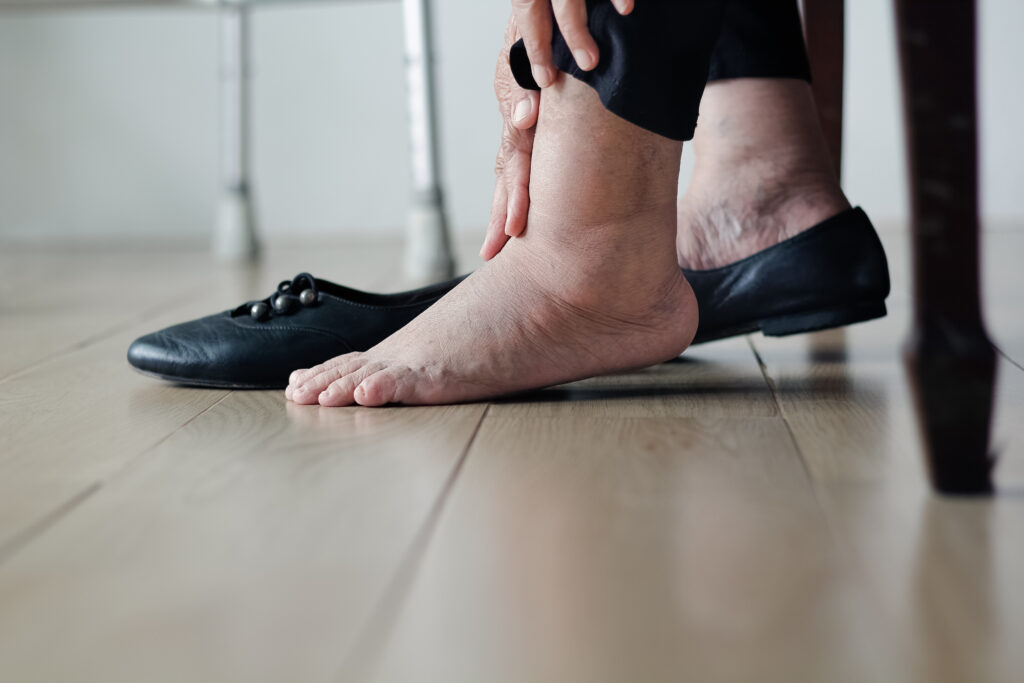Psoriatic Arthritis
Psoriatic arthritis is a chronic disease that causes joint pain, stiffness, and swelling.
Often affecting people who have had psoriasis for many years, psoriatic arthritis can be disabling without proper treatment. If you are worried you may already have psoriatic arthritis, or you think you may be at risk of developing this debilitating condition, then the below guide will tell you everything you need to know.
Read on to discover
- What is psoriatic arthritis?
- What are the most common psoriatic arthritis symptoms?
- Who gets psoriatic arthritis?
- What causes psoriatic arthritis?
- Which parts of the body does psoriatic arthritis affect?
- How is psoriatic arthritis diagnosed?
- When to see a doctor about psoriatic arthritis?
- What is the best psoriatic arthritis treatment?
- Are there any complications associated with psoriatic arthritis?
- How to live with psoriatic arthritis?
- Psoriatic arthritis FAQs
What is psoriatic arthritis?
Psoriatic arthritis is a type of arthritis that typically affects people with psoriasis. It is a long-term and chronic disease that can get progressively worse over time.
Although there is no cure for psoriatic arthritis, with the right treatment, you can manage your symptoms and slow down the progression of this condition.
If left untreated, psoriatic arthritis can cause permanent joint damage or deformity, which may require surgery.
What are the most common psoriatic arthritis symptoms?
When it comes to the symptoms of psoriatic arthritis flare, there are several to look out for:
- Joints that are painful, swollen, and warm to the touch
- Swollen fingers and toes
- Foot pain
- Lower back pain
- Nail changes such as nail pitting and the nail separating from the nail bed
- Eye inflammation
The symptoms of this condition can differ depending on whether you have mild psoriatic arthritis or severe psoriatic arthritis.

Who gets psoriatic arthritis?
An estimated 1 in 5 people with psoriasis develop psoriatic arthritis. Both men and women are equally as likely to develop psoriatic arthritis, and it can occur at any age but is more common in people aged between 30 and 55. It is most likely to be diagnosed within the first ten years of having psoriasis.
Although most people will develop psoriasis first, some will develop the signs of psoriatic arthritis and psoriasis at the same time.
Those with psoriasis are more at risk of developing other joint conditions, including rheumatoid arthritis and osteoarthritis.
Nail psoriasis, which affects the fingernails and toenails, is also common in people with psoriatic arthritis, affecting between 50-80%.
What causes psoriatic arthritis?
Psoriatic arthritis happens when your body’s immune system attacks your healthy cells and tissues. This results in an inflammation of the joints and an overproduction of skin cells.
When it comes to psoriatic arthritis causes, there are two key factors that play an important role in your immune system response: genetics and environment.
Genetics
If you have a family history of psoriatic arthritis or psoriasis, you are more likely to develop one or both of these conditions.
Environment
Environmental factors like viral or bacterial infections can trigger psoriatic arthritis in people who already have an inherited tendency to this condition. Physical trauma is another common environmental trigger.
Which parts of the body does psoriatic arthritis affect?
Psoriatic arthritis can affect many different parts of the body but is most prevalent in the joints, such as psoriatic arthritis knee, psoriatic arthritis ankle, and psoriatic arthritis elbow.
Other psoriatic arthritis types include:
- Psoriatic arthritis fingers
- Psoriatic arthritis hands
- Psoriatic arthritis feet
- Psoriatic arthritis eye
If you are experiencing any non-joint symptoms, it is important to talk to your GP about these so that they can recommend the right treatments.
How is psoriatic arthritis diagnosed?
There is no specific test for diagnosing psoriatic arthritis, which can make it difficult to get a diagnosis. It also presents symptoms that are similar to other types of arthritis, such as rheumatoid arthritis.
Furthermore, it is possible to have psoriasis and another type of arthritis which can make the diagnosis process even more complicated.
If you think you may have psoriatic arthritis, then you should make an appointment with your GP. During your appointment, you can expect:
- A discussion about your medical history and your symptoms
- A blood test to test for the rheumatoid factor, which is found in people with rheumatoid arthritis
- X-ray, ultrasound, or another scan such as an MRI to look at your joints
There are certain criteria that you need to fulfill before being diagnosed with psoriatic arthritis, including inflammatory arthritis, presence of psoriasis, and a blood test that is negative for rheumatoid factor.
When to see a doctor about psoriatic arthritis?
Make an appointment with your doctor if you think you might have psoriatic arthritis. This will ensure that you get a proper diagnosis and the right treatment.
Although it can be scary to imagine that you have a long-term condition such as psoriatic arthritis, if left untreated, your quality of life can become seriously affected.
There are many treatments for psoriatic arthritis that you can try, many of which can dramatically improve symptoms and slow the condition’s progression.

What is the best psoriatic arthritis treatment?
There are several treatments for psoriatic arthritis designed to relieve your symptoms, slow the progression of the condition, and improve your overall quality of life.
The most effective treatments for psoriatic arthritis are as follows:
Over-The-Counter treatments
As many suffering from psoriatic arthritis also suffer from psoriasis. There are several ointments to treat the symptoms from psoriasis such as dry, itchy and irritated skin. Ointments such as Locobase Protect and Locobase Repair for extra dry skin.
Non-steroidal anti-inflammatory drugs (NSAIDs)
This is often the first recommended treatment for psoriatic arthritis as it can help to relieve pain and reduce inflammation.
There are two types of NSAIDs available:
- Traditional NSAIDs such as Ibuprofen.
- COX-2 inhibitors such as celecoxib.
There are potential side effects to using NSAIDs to manage psoriatic arthritis, including stomach aches, indigestion, and stomach ulcers.
Corticosteroids
Corticosteroids are designed to help reduce the swelling and pain associated with psoriatic arthritis.
If one area of your body is affected by psoriatic arthritis, then your GP may inject the medicine directly into the joint. This provides fast relief that typically has no side effects.Corticosteroids can also be taken in tablet form, but these can cause side effects, and if you stop taking them, you are likely to experience a psoriatic arthritis flare up.
Disease-modifying anti-rheumatic drugs (DMARDs)
DMARDs are medicines that work to block the effects of the chemicals that are released when your immune system attacks your joints.
These can help to improve your symptoms and slow down the progression of the condition. The sooner you start taking DMARDs for psoriatic arthritis, the better. Although, it can take several weeks, or even months, for the effects to become noticeable
Biological treatments
More innovative treatments for psoriatic arthritis, biological medications such as adalimumab, apremilast, certolizumab, and etanercept work by preventing specific chemicals in the blood from activating in your immune system and attacking your joints.
You need to be aware of the possible side effects of these treatments, including liver, kidney, and blood count problems.Biological treatments are usually prescribed for a period of 3 months to see if they work.
Are there any complications associated with psoriatic arthritis?
A very small percentage of people with psoriatic arthritis develop arthritis mutilans which is a severe and painful condition that can be disabling. Arthritis mutilans can cause permanent disability and deformity as it destroys the small bones in the fingers.
Psoriatic arthritis can also increase your risk of developing:
- Hypertension
- Metabolic syndrome
- Diabetes
- Cardiovascular disease
How to live with psoriatic arthritis?
Living with psoriatic arthritis can be challenging, especially if you are experiencing severe symptoms. However, there are recommended strategies that you can put in place to improve your quality of life.
- Try to remain active
- Manage your pain with NSAIDs
- Lower your stress levels
- Try acupuncture
- Join a support group
- Be open with your family and friends about how you are feeling

Psoriatic arthritis FAQs
What are the early warning signs of psoriatic arthritis?
There are several early warning signs of psoriatic arthritis, including joint pain, joint stiffness, pitted nails, nail separation, lower back pain, foot pain, and swollen fingers or toes.
If you think you may be developing psoriatic arthritis, make an appointment with your GP as soon as possible.
What does psoriatic arthritis pain feel like?
Psoriatic arthritis pain can feel throbbing, tender, and warm to the touch. Symptoms are often worse after periods of rest and first thing in the morning. Psoriatic arthritis pain can be debilitating if left unmanaged.
What are the 5 types of psoriatic arthritis?
There are 5 types of psoriatic arthritis:
- Distal interphalangeal predominant, which affects the ends of the toes and fingers
- Asymmetric oligoarticular, which affects different joints on either side of the body
- Symmetric polyarthritis that affects the same joints on both sides of the body
- Spondylitis that affects the spine
- Arthritis mutilans is extremely rare and damages the joints in the hands and feet
What can trigger psoriatic arthritis?
Physical trauma can trigger psoriatic arthritis, as well as bacterial or viral infections. Other common triggers include exposure to cigarette smoke, severe stress, cold weather, and drinking too much alcohol.
What foods to avoid if you have psoriatic arthritis?
If you live with psoriatic arthritis, you should avoid eating fatty red meats, dairy, refined sugars, processed foods, and starchy vegetables such as potatoes and aubergines. You should also limit your intake of alcohol.
Is exercise good for psoriatic arthritis?
Yes, exercise is good for psoriatic arthritis. Doing the right type and amount of exercise can help to reduce joint pain and stiffness. Regular exercise can also help to reduce your stress levels which can reduce flare-ups. It’s recommended that you focus on endurance exercises such as walking, swimming, and cycling.
Does caffeine make psoriatic arthritis worse?
There is no medical evidence to suggest that caffeine makes psoriatic arthritis worse. In fact, as coffee contains antioxidants, drinking a few cups of coffee per day may be beneficial to your health.
Does drinking alcohol affect psoriatic arthritis?
Yes, drinking alcohol can make the symptoms of psoriatic arthritis worse. This is because it triggers the release of cytokines which can make inflammation worse. Furthermore, alcohol can cause liver damage, and certain psoriatic arthritis medications can also affect the liver.
What is the safest drug for psoriatic arthritis?
The safest over-the-counter drug for psoriatic arthritis is ibuprofen which can help to reduce pain and inflammation of the joints. You can also ask your GP to prescribe Disease-modifying anti-rheumatic drugs (DMARDs).
No products found